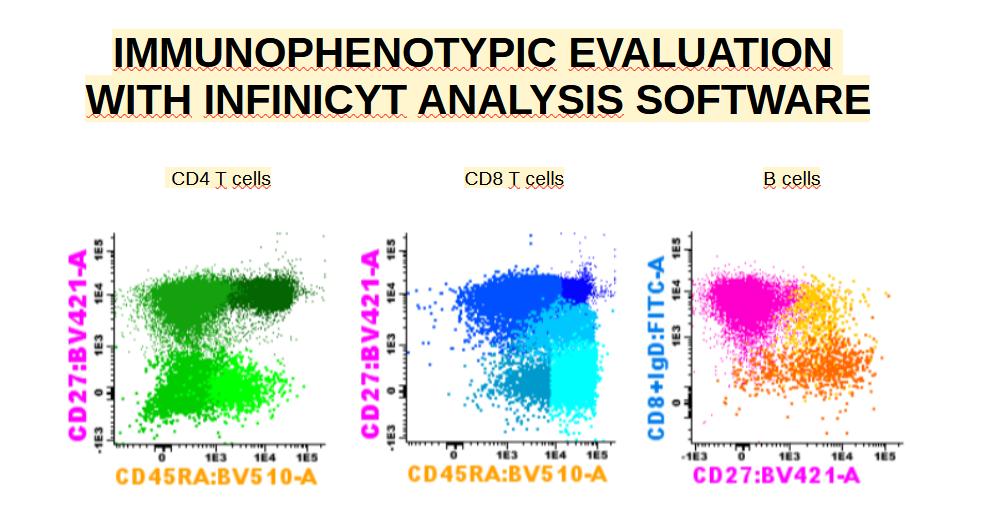EFLM LabX report
by Nancy Larocca, Spain
My name is Nancy, I´m a Clinical Analysis resident at Hospital Universitario A Coruña, Galicia, Spain. My training period at Laboratory of Immunology and Primary Immunodeficiencies at NOVA Medical School (Lisbon, Portugal) ended two weeks ago. This center has been involved since last years in the implementation of assays for the diagnosis and follow-up of patients with immune disorders, also establishing research projects that allow to increase our knowledge in the area of immunodeficiencies.
From april to end june, I have learned the basis of flow cytometry and application of this technique in diagnosis of Primary Immunodeficiencies (PID), also called inborn errors of immunity that affect phenotype and/or function of one or more components of the immune system. Under the supervision of Professor Catarina Gregório Martins and her team of laboratory technicians (Maria Teresa Lopes and Miguel Dias), I acquired several skills in the execution and analysis of different protocols for the study of lymphocyte subpopulations, included quantitative and functional assays. Day after day, I was gaining knowledge in basic principles of flow cytometry, technology based in laser light to measure physical and chemical properties of single particles in suspension and then analyzed one by one by electronic system and gating strategy. Surface, intracellular, and intranuclear proteins can easily be evaluated, using monoclonal antibodies conjugated with fluorochromes, enabling both phenotypic and functional identification of specific cell populations and therefore facilitating the identification of a variety of Primary Immunodeficiencies. One of the most frequent methods used at lab is a PID Orientation tube (PIDOT), developed by EuroFlow consortium that facilitates fast, standardized, and validated immunophenotypic diagnosis of lymphoid PID, and allows full exchange of data between centers. The EuroFlow™ group has designed a set of 8-color antibody panels for the diagnosis, classification and follow-up of PID, using standardized protocols for each panel to assure full technical standardization in 3-laser based cytometer (e.g. BD FACS Canto II™) which can be used in combination with novel Infinicyt™ analysis software in order to optimize immunophenotypic evaluation of immune cells. The use of a normal reference database helps to detect the involved celullar compartments and to orientate to further flow cytometry characterization panels or possible genetic defects. Using anticoagulated peripheral blood samples from patients with suspect of immunodeficiency, I learned how citometer work and the importance of this tool in the field of immunology and study of cellular or humoral deficiencies. While genetic analysis provides a definitive diagnosis for PID, flow cytometry is necessary to confirm or establish the immune phenotype of a gene mutation. Furthermore, flow cytometry provides a rapid means to identify an immunological defect at a relatively low cost and represents a fast, robust, and sensitive approach that efficiently uncovers new immunopathological mechanisms underlying monogenic PIDs. Financial support from EFLM was very important for made this trainee experience. I feel deep gratitude for each word, for each resource available to me and for the professionally and personally assistance. I hope that in the near future, I can apply everything I have learned and contribute to the implementation of these techniques in the hospital where I have completed my training.
EFLM LabX report
by Nancy Larocca, Spain
My name is Nancy, I´m a Clinical Analysis resident at Hospital Universitario A Coruña, Galicia, Spain. My training period at Laboratory of Immunology and Primary Immunodeficiencies at NOVA Medical School (Lisbon, Portugal) ended two weeks ago. This center has been involved since last years in the implementation of assays for the diagnosis and follow-up of patients with immune disorders, also establishing research projects that allow to increase our knowledge in the area of immunodeficiencies.
.


